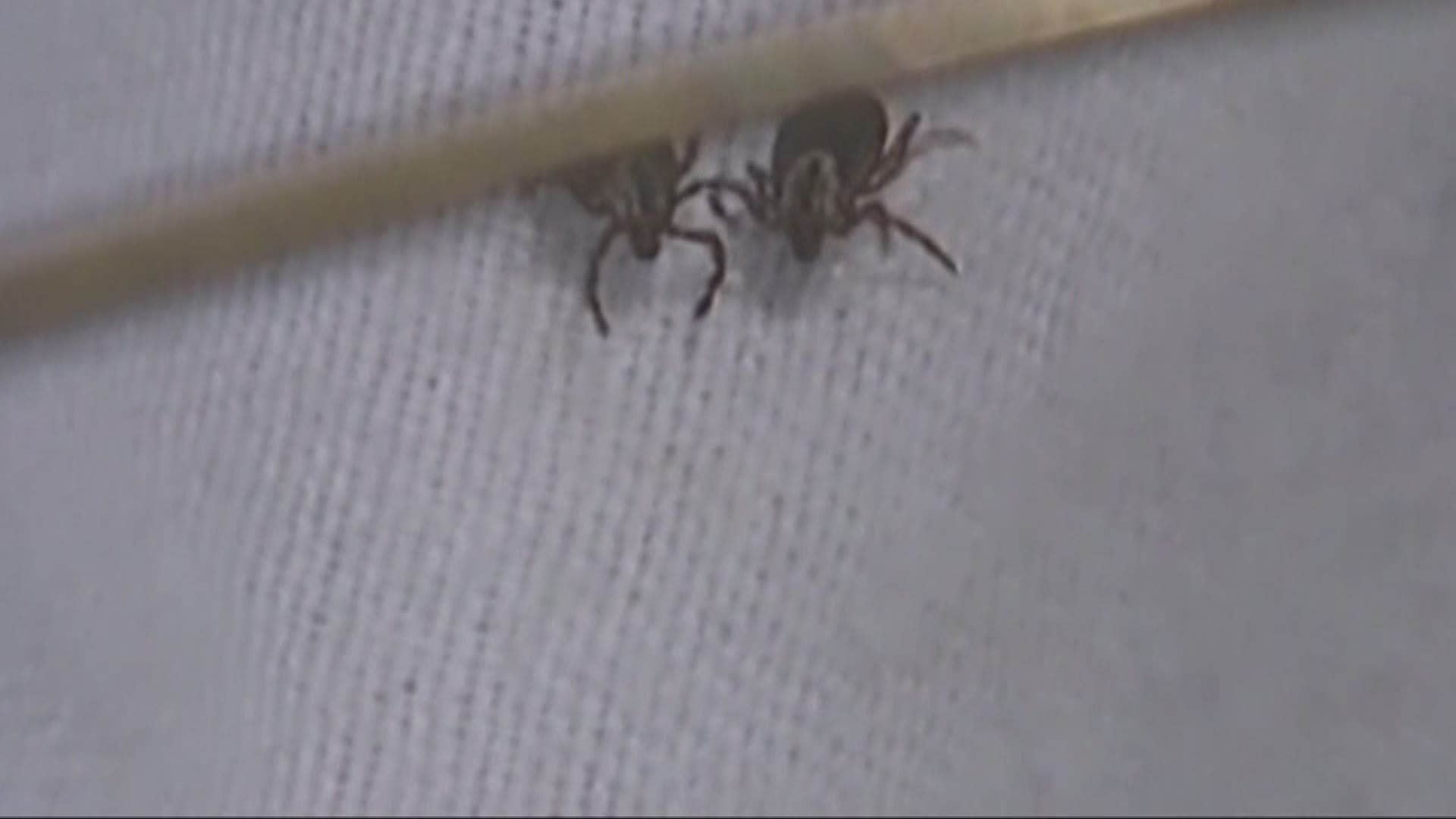CHARLOTTE, NC - Health officials are warning of a surge in Lyme disease cases in North Carolina.
Even more concerning, the alert comes on the heels of new research that shows the disease can trigger suicide.
June through August is the peak of tick and Lyme disease season. The number of cases have doubled just over the past few years in North Carolina, making the new research more important, and more concerning than ever.
The peer-reviewed publication estimates that of the 44,000 people took their own lives in 2015 (the last year for which data was available), as many as 1,200 of those suicides — as well as more than 14,000 incidents of self-harm and 31,000 suicide attempts — may be attributed to Lyme and associated diseases each year.
John McLean, chairman of the Central N.C. Chapter of the National Capital Lyme Disease Association, says he’s not surprised.
“There were times where I lay down in bed at night and I said you know if I don't wake up in the morning that's ok,” he recalled of his own battle with the disease.
Doctors misdiagnosed McLean for almost a decade, with ailments ranging from depression to Alzheimer’s.
They eventually realized he had Lyme disease, caused by a tick bite he’d gotten almost a decade prior to the diagnosis.
“I remembered I had gotten a tick bite,” McLean said. “I had the perfect bull's-eye rash, flu like symptoms, joint aches, pretty much had all the symptoms.”
McLean and his wife now run Lyme disease support groups in North Carolina, and try to raise awareness about the disease and the importance of prevention.
Meanwhile, state health officials are expressing their concern about growing Lyme disease numbers in North Carolina.
They are now reporting more than 240 cases last year, up from 185 the year before.
Like in John's case, many Lyme disease cases go un- or mis-diagnosed.
If you get a tick bite, experts suggest you pluck it with tweezers.
If you have any symptoms in the days following, including fever, joint pain, and rash, see a doctor right away.
John holds NatCapLyme support group sessions on the second Saturday of every month.

